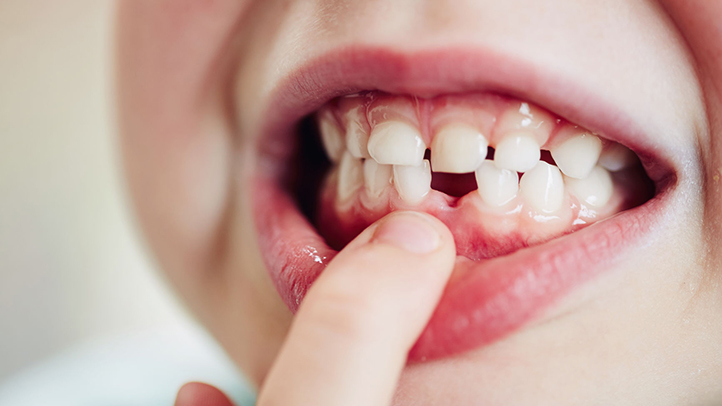
Understanding Orthodontic Issues: What Parents Should Watch for in Their Child
As parents, we always want the best for our children, especially when it comes to their health. One aspect of health that often requires attention but can sometimes be overlooked is orthodontic care.
Orthodontic issues, if left unattended, can lead to more serious problems down the line. In this blog, we will explore common orthodontic issues that parents should watch for in their children, and the importance of early intervention in ensuring their dental health.
The Importance of Early Orthodontic Intervention
Orthodontic issues, such as misaligned teeth, improper jaw growth, and bite problems, can impact a child’s overall oral health and well-being. Addressing these issues early can prevent further complications and reduce the need for extensive treatments later in life. Early orthodontic intervention can also improve facial aesthetics, boost self-esteem, and promote proper oral hygiene habits.
Signs and Symptoms to Watch For

Crooked or Crowded Teeth: Crooked or crowded teeth are among the most common orthodontic issues in children. These issues can make it difficult to clean teeth properly, leading to an increased risk of tooth decay and gum disease. Parents should pay attention if they notice overlapping or misaligned teeth in their child’s mouth.
Difficulty Chewing or Biting: Difficulty chewing or biting can indicate problems with the alignment of the teeth or jaws. Children who experience pain or discomfort while chewing may be suffering from a misaligned bite, which should be addressed by an orthodontist.

Thumb Sucking or Pacifier Use: Prolonged thumb sucking or pacifier use can impact the development of the teeth and jaws, leading to orthodontic issues such as open bite or protruding front teeth. Parents should discourage thumb-sucking or pacifier use beyond the age of three to prevent these problems.

Mouth Breathing: Mouth breathing can indicate underlying orthodontic issues, such as a narrow palate or obstructed airway. Chronic mouth breathing can lead to dry mouth, bad breath, and facial abnormalities. Parents should consult with an orthodontist if their child exhibits persistent mouth breathing.
Speech Difficulties: Orthodontic issues, such as misaligned teeth or jaws, can affect a child’s speech development. Speech impediments like lisping or difficulty pronouncing certain sounds may indicate the need for orthodontic intervention.

Jaw Pain or Clicking: Jaw pain or clicking noises when opening and closing the mouth can be signs of temporomandibular joint (TMJ) disorders, which can be associated with orthodontic issues. Parents should seek professional evaluation if their child complains of jaw pain or exhibits TMJ symptoms.
Early Loss of Baby Teeth: Premature loss of baby teeth can disrupt the normal development of permanent teeth, leading to orthodontic problems such as crowding or spacing issues. Parents should monitor their child’s dental development and consult with a dentist or orthodontist if baby teeth are lost earlier than expected.

The Role of Orthodontic Evaluation
Regular orthodontic evaluations are essential for detecting and addressing orthodontic issues in children. The American Association of Orthodontists recommends that children receive their first orthodontic evaluation by the age of seven, as this is when orthodontic problems often become apparent.
Early intervention allows orthodontists to intervene at the optimal time, guiding the growth and development of the teeth and jaws to prevent more serious issues in the future.
At Yang Orthodontics we offer consultations completely free of charge! So we can examine and see if your child is even a candidate for treatment to begin with.
Orthodontic Treatment Options For Children May Include
Braces: Traditional braces consist of metal brackets and wires that are attached to the teeth to gradually move them into proper alignment. Braces are highly effective for correcting a wide range of orthodontic issues and are suitable for children of all ages.
Clear Aligners: Clear aligners, such as Invisalign Teen, offer a more discreet alternative to traditional braces. These custom-made aligners are virtually invisible and can be removed for eating and oral hygiene, making them popular among older children and teenagers.
Orthodontic Appliances: Orthodontic appliances, such as palate expanders or headgear, may be recommended to correct specific orthodontic problems, such as narrow arches or overbite. These appliances work by applying gentle pressure to gradually move the teeth and jaws into the desired position.
Surgical Intervention: In severe cases of orthodontic issues, surgical intervention may be necessary to correct underlying skeletal abnormalities. Orthodontic surgery is typically performed during adolescence or early adulthood, after the completion of facial growth.
Orthodontic issues are common in children and can have a significant impact on their oral health and overall well-being. As parents, it is essential to be vigilant for signs and symptoms of orthodontic problems and seek early intervention when necessary.
Regular orthodontic evaluations and timely treatment can help prevent more serious issues and ensure your child’s smile remains healthy and beautiful for years to come. Remember, a healthy smile starts with early orthodontic care!
To schedule your child’s free consultation, click here or call us at 215-757-0864.
